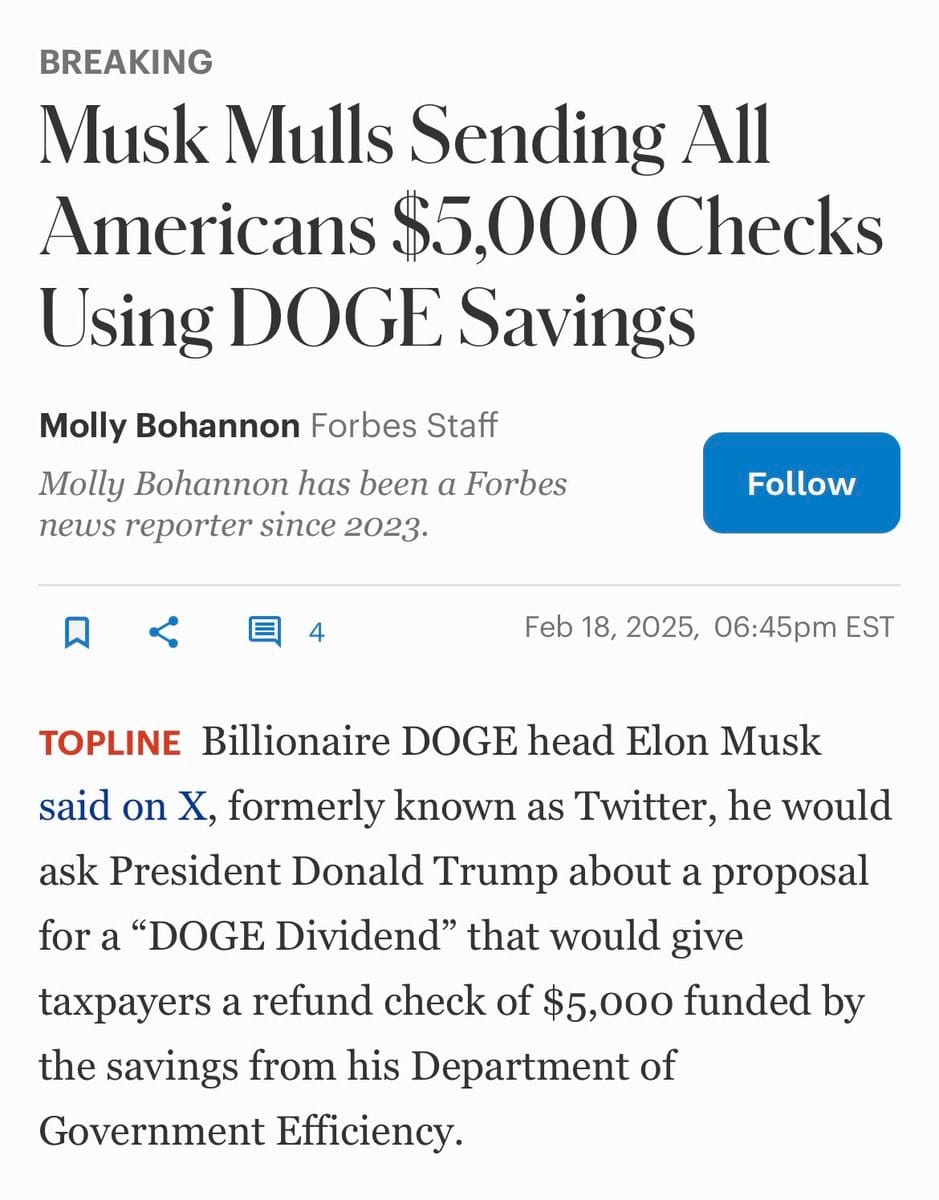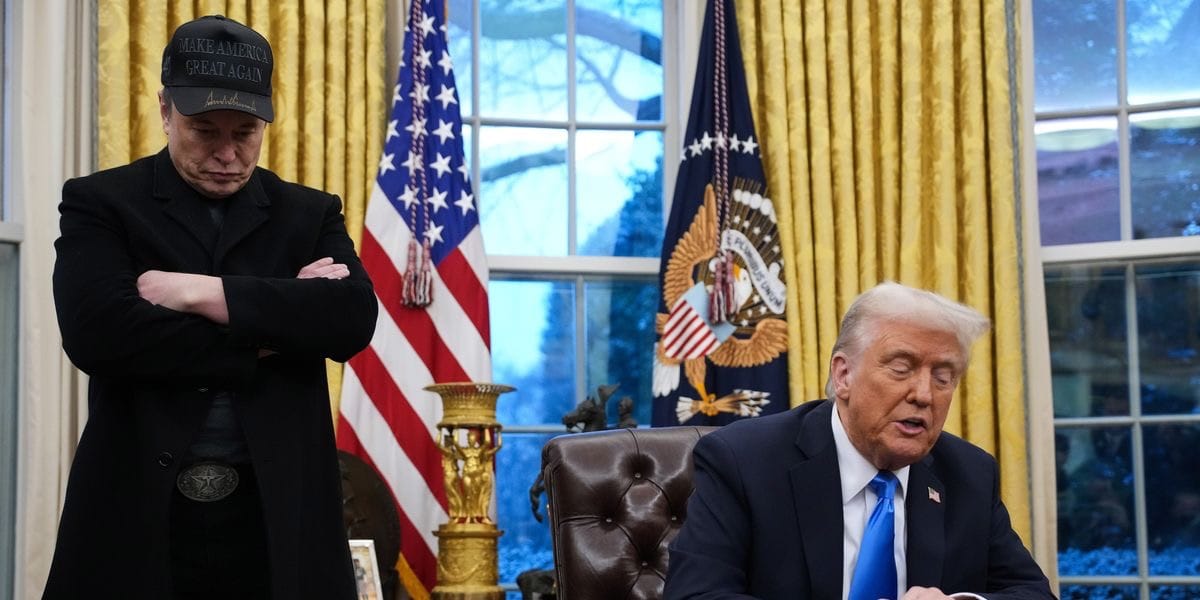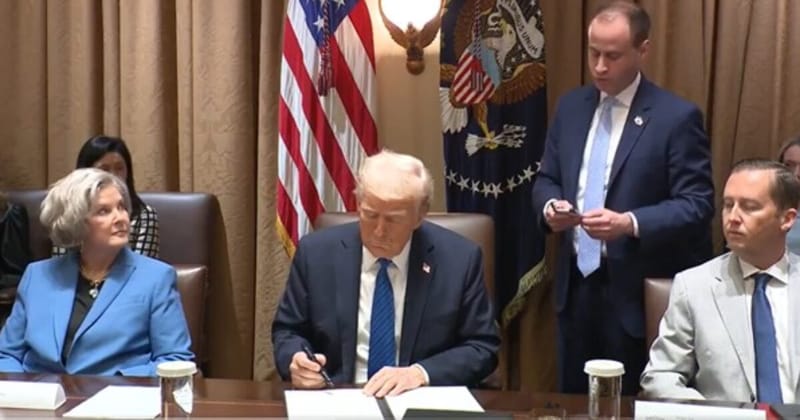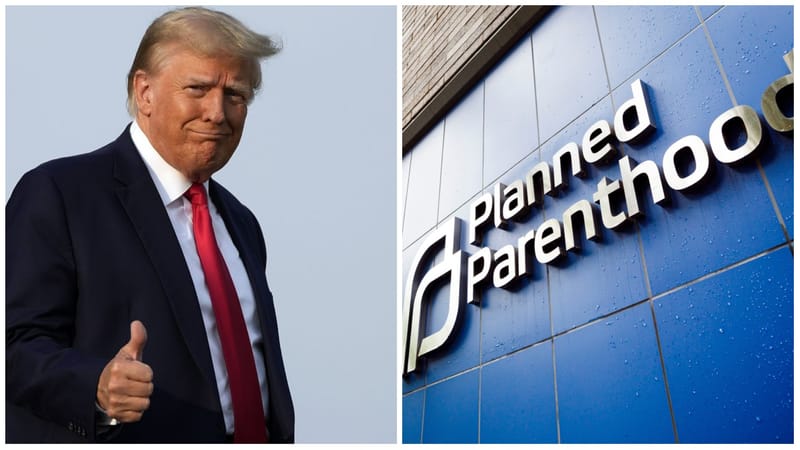Musk and Trump Explore $5,000 Checks for Americans Using DOGE Savings
Proposal Aims to Distribute Government Efficiency Gains, Faces Feasibility Questions February 19, 2025 - Washington, D.C.WASHINGTON, D.C. – In a bold move that has sparked both excitement and skepticism, billionaire Elon Musk and President Donald Trump are considering a plan to send all American taxpayers a $5,000
Proposal Aims to Distribute Government Efficiency Gains, Faces Feasibility Questions
February 19, 2025 - Washington, D.C.WASHINGTON, D.C. – In a bold move that has sparked both excitement and skepticism, billionaire Elon Musk and President Donald Trump are considering a plan to send all American taxpayers a $5,000 check, funded by savings from the newly established Department of Government Efficiency (DOGE). The proposal, dubbed the "DOGE Dividend" by its proponents, emerged from discussions between Musk, who leads the efficiency initiative, and the Trump administration, aiming to return a portion of the federal savings directly to citizens.
The concept was first floated by James Fishback, CEO of Azoria and an informal adviser to DOGE, who suggested on social media that 20% of the department’s targeted $2 trillion in savings—approximately $400 billion—could be redistributed to the 79 million tax-paying households in the U.S. Fishback’s post on X tagged Musk, prompting a response from the Tesla and SpaceX CEO: “Will check with the President.” Musk later clarified, “Obviously, the President is the Commander-in-Chief, so this is entirely up to him,” underscoring Trump’s ultimate authority over the decision.
MUSK MULLS SENDING ALL AMERICANS $5,000 CHECKS USING DOGE SAVINGS
— *Walter Bloomberg (@DeItaone) February 19, 2025
Billionaire DOGE head Elon Musk said on X, formerly known as Twitter, he would ask President Donald Trump about a proposal for a “DOGE Dividend” that would give taxpayers a refund check of $5,000 funded by the…
As of Monday, DOGE’s official website, doge.gov, reported savings of $55 billion, achieved through measures like fraud detection, contract cancellations, workforce reductions, and regulatory reforms. Fishback’s proposal hinges on the ambitious goal of reaching $2 trillion in savings by DOGE’s planned expiration in July 2026. If successful, this would translate to a $5,000 rebate per household, a figure that has captured public imagination amid ongoing economic pressures.
However, the plan’s feasibility remains under scrutiny. Budget experts caution that distributing such funds would require Congressional approval, a hurdle given competing priorities like reducing the national debt or extending Trump’s tax cuts. “Any rebate program would need a clear mechanism to collect and verify savings, then channel them through the Treasury,” said F. Stevens Redburn, a former official at the Office of Management and Budget. “That’s a complex process, and lawmakers might prefer other uses for the money.”
JUST IN: Musk Suggests 'DOGE Refund' That Would Provide Checks To Americanshttps://t.co/zLvGNT49Ve
— Election Wizard (@ElectionWiz) February 19, 2025
The idea has precedent—Trump and his predecessor, Joe Biden, both authorized stimulus checks during the COVID-19 pandemic—but critics argue the current context differs. “This isn’t about economic recovery; it’s about redistributing unconfirmed savings,” said a senior Democratic aide on Capitol Hill, speaking anonymously. Posts on X reflect a mix of enthusiasm and doubt, with some users cheering the prospect of cash relief while others question DOGE’s claims, noting discrepancies between the reported $55 billion and independent estimates as low as $6 billion annually.

Musk, a key figure in Trump’s administration despite the White House downplaying his official role, has positioned DOGE as a revolutionary force against government waste. The department, created by executive order on Trump’s first day in office, has already faced legal challenges over its access to sensitive data and authority to enact cuts. Supporters, including Fishback, argue the dividend would make DOGE’s impact tangible to Americans, with Fishback asserting it “won’t be inflationary” since it’s funded by savings, not new spending.
Trump has yet to formally endorse the plan, but his administration’s focus on efficiency and tax relief suggests openness to the idea. As discussions continue, the "DOGE Dividend" remains a provocative symbol of Musk and Trump’s unconventional approach to governance—one that could either redefine federal priorities or stumble over practical and political realities. For now, Americans await word from the Oval Office, where the fate of their potential $5,000 checks hangs in the balance.




